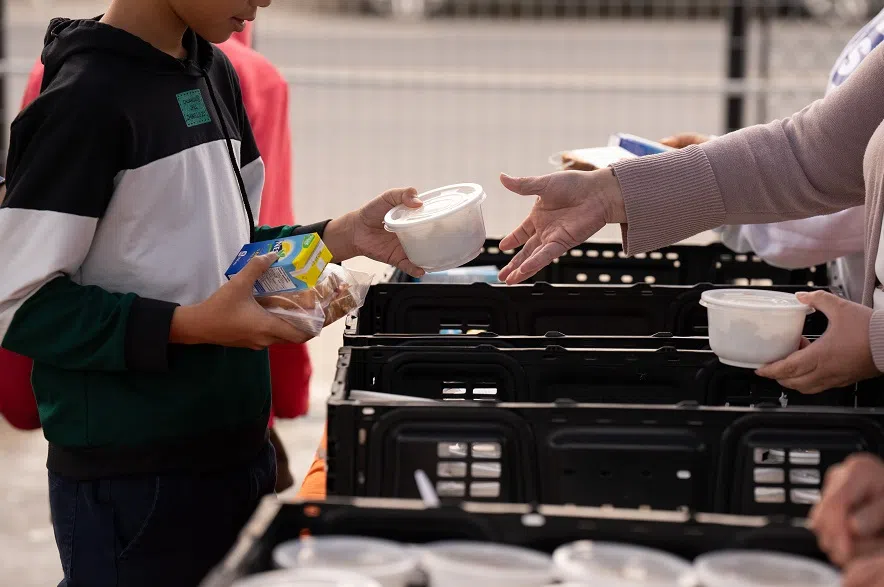Two of the busiest food banks in Saskatchewan got a big boost on Wednesday from K+S Potash Canada.
The mining giant donated $1 million to improve food security in Saskatchewan, with the money split evenly between the Saskatoon and Regina food banks.
READ MORE:
- Regina Food Bank opens choice model food hub
- Sask. Government helps food banks with $2M over two years
- Surge of support for Moose Jaw Food Bank eases crisis concerns
In Saskatoon, the funds will support the food bank’s nutritional education program and a learning space in the bank’s new facility.
“The purpose-built facility will allow us to better address hunger and poverty for the up to 23,000 people turning to us each month, 41% of which are children,” Laurie O’Connor, the Saskatoon Food Bank & Learning Centre’s executive director, said in a statement.
In Regina, the funds will be used for a new play structure next to the Asahtowikamik Food Hub in the city’s downtown, and will also support youth school food programs in nine community schools.

Regina Foodbank Vice President David Froh said this money will help feed thousands of kids. (Daniel Reech/980 CJME)
David Froh, Vice President of the Regina Food Bank said he’s grateful for the support from K+S, which shares the food bank’s commitment to helping those in need.
The money will help feed over 2,000 children in nine community schools for years.
The students at the announcement were from Thompson Community School, one of the nine schools that Regina Food Bank will support with its youth school food programs, enabled by the donation.
The funds will also go to equipping the food bank’s playground.
“A hungry child can’t learn, a hungry family can’t realize protection. You all see a playstructure, you see a basketball net, you see public art,” Froh said.
“That’s how we enrich and build community.”
Chelsea Iatridis, director of people and communications with K+S Potash Canada, said it was incredibly important to embark on this partnership given the prevalence of food insecurity.
“We see the potential in the youth and we know that youth will only flourish with nutrition,” she said.
Iatridis said it was important to build a sustainable future and serve as inspiration for others to get involved.
Froh said food banks are feeling immense pressure across the province due to rising levels of food insecurity. Froh said Regina Food Bank serves 17,000 people per month.
“When you invest in a child and make sure their tummies are full, there’s higher rates of graduation, there’s higher rates of economic return, there’s lower unemployment rates. These are kids that are not going to grow up having diabetes and heart disease,” Froh told reporters on Wednesday.
“The return is a healthier community. It is literally the best return and investment we can make as a society is to feed children.”
Froh said candidates at all levels of government should be asked about their plans to deal with poverty and food insecurity.
“We pay for it in our hospitals, in our jails and our economic outcomes when we don’t feed families,” he said.
-with files from 980 CJME’s Daniel Reech












